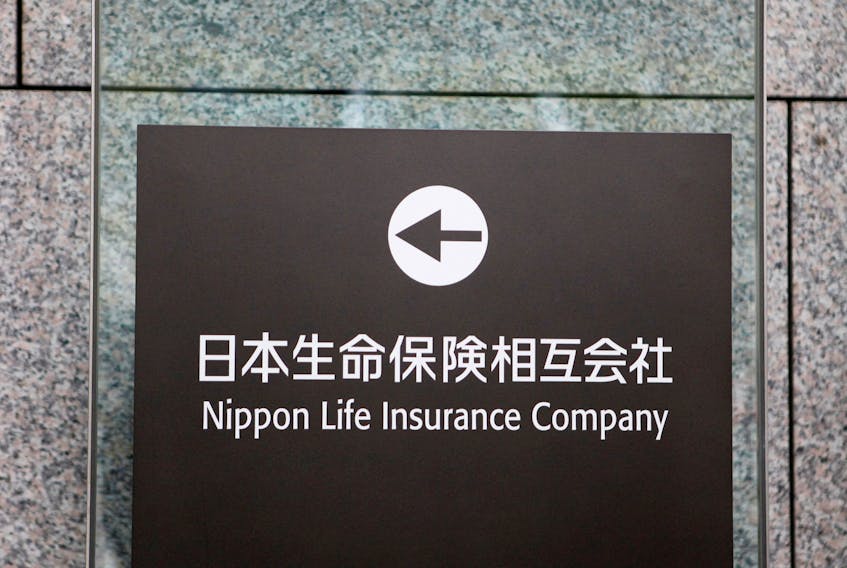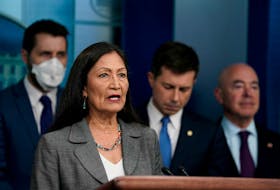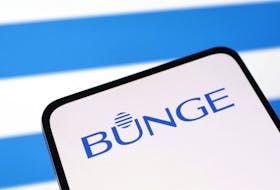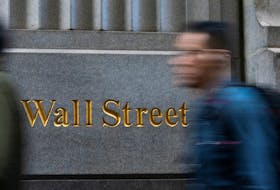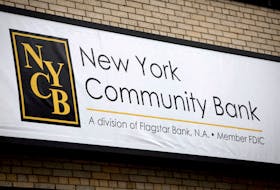By Hideyuki Sano and Tomo Uetake
TOKYO (Reuters) - Japan's life insurers are holding out for the possibility that the Federal Reserve's first rate cut in more than a decade will afford them better levels at which to be buying the U.S. dollar.
The dramatic shift in the outlook on U.S. monetary policy has not persuaded the insurers - among the biggest players in the Japanese currency market - to materially change their stance on dollar purchases but some are starting to nibble in.
"At this point, we don't think it necessary to change our forecast of a 100-120 yen range," said Akira Tsuzuki, general manager of international investment at Nippon Life Insurance.
"We don't think the dollar has bottomed yet, but we are dabbling in bargain-hunting, little by little," he added.
Five top Japanese life insurers Reuters spoke to in the past week say they are ready to increase their exposure to dollars if the U.S. currency falls to near 100 yen, about 8% cheaper than where it is now. The insurers believe the yen may not rise beyond that psychologically-important barrier.
Since early May, when global markets reacted to escalating trade tensions between Washington and Beijing after U.S. President Donald Trump threatened new tariffs on all of China's imports, the yen has gained on a flight to safety. Investors flock to the perceived safe-haven asset in part because of Japan's status as a net creditor nation.
Rising expectations the Fed will cut interest rates to cushion its economy against blows from slowing trade and growth have undermined the dollar's yield advantage. It slipped to a five-month low of 107.81 yen earlier this month from its April high of 112.40 yen and last stood at 108.29.
Japanese life insurers hold large amounts of foreign bonds but typically hedge the currency risk on a big portion of those, despite the fact that current costs of hedging almost wipe out the interest incomes on top-rated debt, such as U.S. Treasuries.
Other insurance firms are more cautious, hoping for better entry levels.
"We won't buy dollars, if the dollar falls to just 105 yen. That won't be enough," said Ryosuke Fukushima, general manager of investment planning at Japan Post Insurance (Kampo). "We'd like to see the dollar falling to at least around 104, levels it touched only briefly in January."
In a typical currency hedge on dollar investments overseas, insurers would have sold dollars in the forward market against the yen. Buying back those dollars would leave them exposed to currency fluctuations, but potentially boost their returns because they are getting the dollars more cheaply.
In the past four episodes of the Fed's easing cycles, the dollar gained against the yen twice, in 1995 and 2001, in the three months immediately following the first rate cut. In the other two episodes, in 1998 and 2007, the dollar fell.
The U.S. central bank is likely to leave borrowing costs unchanged at a policy meeting that ends on Wednesday, but markets are almost fully pricing in a 25-basis-point rate cut for July.
There is no certainty the dollar will fall this time. Investors say it might gain if the Fed's rate cut succeeds in boosting confidence in the U.S. economy and helps it avoid a recession.
Dai-ichi Life now thinks the Fed's easing is likely to help prevent a sudden, sharp downturn in the U.S. economy, and therefore a sudden fall in the dollar versus the yen.
"But we still expect the dollar to fall toward the end of this year. We could consider buying the dollar if it falls to stay sufficiently below 105 yen," said Koichi Matsumoto, general manager of global fixed income at Dai-ichi.
Officials from two other big insurers, Meiji Yasuda and Sumitomo Life, also said they expect the dollar's bottom to be around 100 yen for the financial year ending in March.
Kampo's Fukushima also said the company may choose to buy Japanese stocks instead of buying dollars, if they think the upside potential for stocks is greater.
"At the moment, stocks seem cheaper. It's not that we will definitely buy dollars."
(Additional reporting by Shinichi Saoshiro; Editing by Vidya Ranganathan and Jacqueline Wong)

